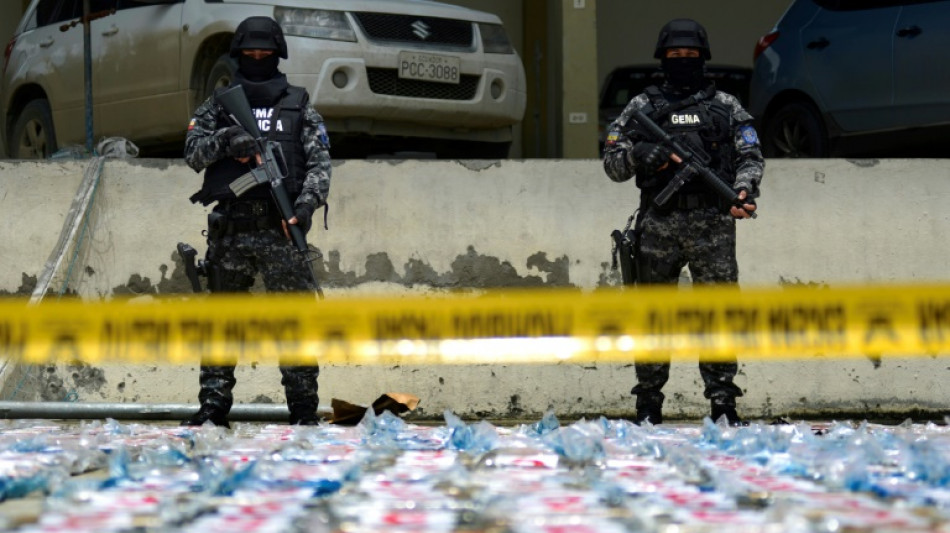
-
 Health concerns swirl as Bolivian city drowns in rubbish
Health concerns swirl as Bolivian city drowns in rubbish
-
Syria says deadly Israeli strikes a 'blatant violation'
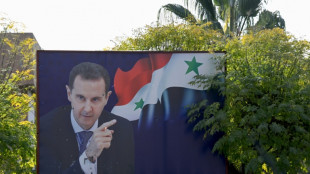
-
 Financial markets tumble after Trump tariff announcement
Financial markets tumble after Trump tariff announcement
-
Starbucks faces new hot spill lawsuits weeks after $50mn ruling
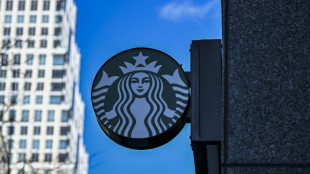
-
 Europe riled, but plans cool-headed response to Trump's tariffs
Europe riled, but plans cool-headed response to Trump's tariffs
-
'Shenmue' voted most influential video game ever in UK poll

-
 New coal capacity hit 20-year low in 2024: report
New coal capacity hit 20-year low in 2024: report
-
Revealed: Why monkeys are better at yodelling than humans

-
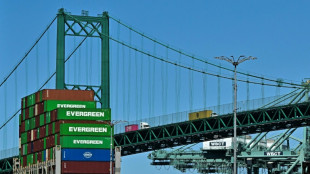 Key details on Trump's market-shaking tariffs
Key details on Trump's market-shaking tariffs
-
'A little tough love': Top quotes from Trump tariff talk
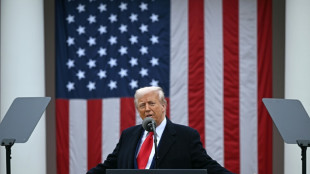
-
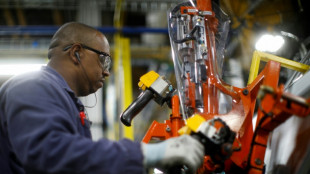 US business groups voice dismay at Trump's new tariffs
US business groups voice dismay at Trump's new tariffs
-
Grealish dedicates Man City goal to late brother

-
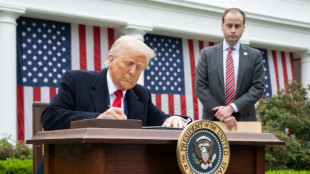 US tariffs take aim everywhere, including uninhabited islands
US tariffs take aim everywhere, including uninhabited islands
-
Trump sparks trade war with sweeping global tariffs
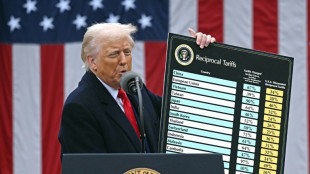
-
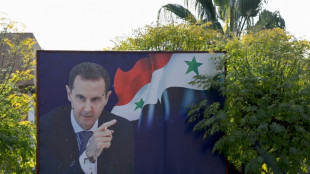 Israeli strikes hit Damascus, central Syria; monitor says 4 dead
Israeli strikes hit Damascus, central Syria; monitor says 4 dead
-
Slot 'hates' offside rule that gave Liverpool win over Everton

-
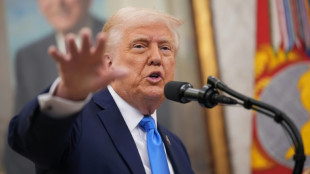 US stocks end up, but volatility ahead after latest Trump tariffs
US stocks end up, but volatility ahead after latest Trump tariffs
-
Barca oust Atletico to set up Clasico Copa del Rey final
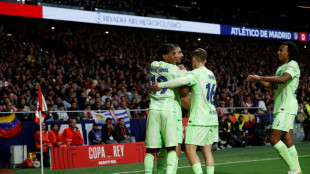
-
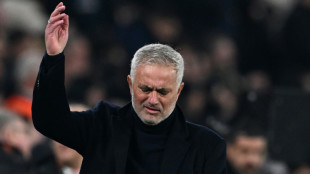 Mourinho grabs Galatasaray coach's face after losing Istanbul derby
Mourinho grabs Galatasaray coach's face after losing Istanbul derby
-
Grealish strikes early as Man City move up to fourth in Premier League

-
 Reims edge out fourth-tier Cannes to set up PSG French Cup final
Reims edge out fourth-tier Cannes to set up PSG French Cup final
-
Liverpool beat Everton as title looms, Man City win without Haaland

-
 Jota wins bad-tempered derby as Liverpool move 12 points clear
Jota wins bad-tempered derby as Liverpool move 12 points clear
-
Inter and Milan level in derby Italian Cup semi

-
 Stuttgart beat Leipzig to reach German Cup final
Stuttgart beat Leipzig to reach German Cup final
-
Trump unveils sweeping global tariffs
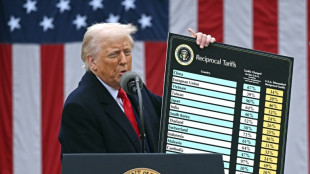
-
 Italian director Nanni Moretti in hospital after heart attack: media
Italian director Nanni Moretti in hospital after heart attack: media
-
LIV Golf stars playing at Doral with Masters on their minds

-
 Trump unveils sweeping 'Liberation Day' tariffs
Trump unveils sweeping 'Liberation Day' tariffs
-
Most deadly 2024 hurricane names retired from use: UN agency

-
 Boeing chief reports progress to Senate panel after 'serious missteps'
Boeing chief reports progress to Senate panel after 'serious missteps'
-
Is Musk's political career descending to Earth?

-
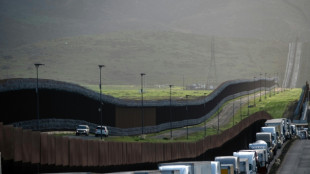 On Mexico-US border, Trump's 'Liberation Day' brings fears for future
On Mexico-US border, Trump's 'Liberation Day' brings fears for future
-
Starbucks faces new hot spill lawsuit weeks after $50mn ruling
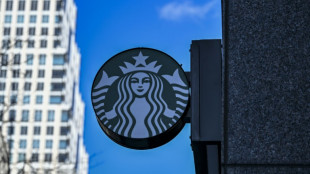
-
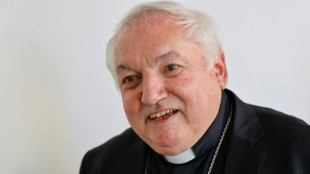 Ally of Pope Francis elected France's top bishop
Ally of Pope Francis elected France's top bishop
-
'Determined' Buttler leads Gujarat to IPL win over Bengaluru

-
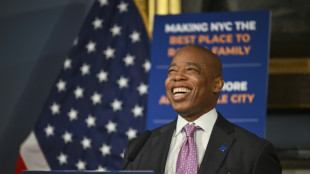 US judge dismisses corruption case against New York mayor
US judge dismisses corruption case against New York mayor
-
Left-wing party pulls ahead in Greenland municipal elections
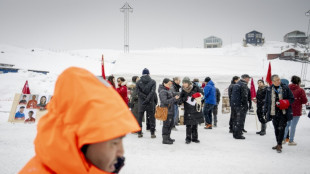
-
 Blistering Buttler leads Gujarat to IPL win over Bengaluru
Blistering Buttler leads Gujarat to IPL win over Bengaluru
-
Tesla sales slump as pressure piles on Musk
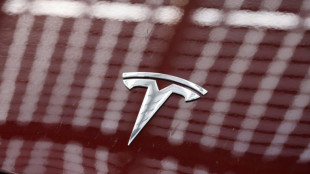
-
 Amazon makes last-minute bid for TikTok: report
Amazon makes last-minute bid for TikTok: report
-
Canada Conservative leader warns Trump could break future trade deal

-
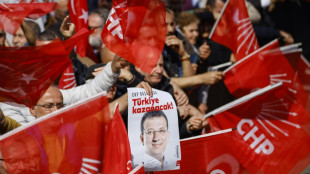 British band Muse cancels planned Istanbul gig
British band Muse cancels planned Istanbul gig
-
'I'll be back' vows Haaland after injury blow

-
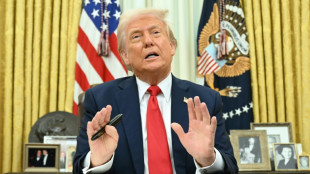 Trump to unveil 'Liberation Day' tariffs as world braces
Trump to unveil 'Liberation Day' tariffs as world braces
-
New coach Edwards adamant England can win women's cricket World Cup

-
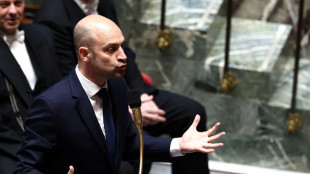 Military confrontation 'almost inevitable' if Iran nuclear talks fail: French FM
Military confrontation 'almost inevitable' if Iran nuclear talks fail: French FM
-
US stocks advance ahead of looming Trump tariffs
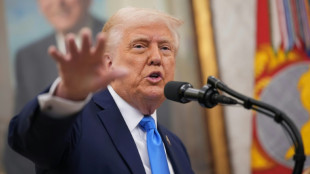
-
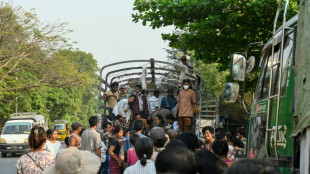 Scramble for food aid in Myanmar city near quake epicentre
Scramble for food aid in Myanmar city near quake epicentre
-
American Neilson Powless fools Visma to win Across Flanders


Ecuador terrorized by Mexican-led drug trafficking explosion
Once a relatively peaceful neighbor of major cocaine producers Colombia and Peru, Ecuador has become a battleground for criminal gangs looking to control the drug trafficking trade, analysts and authorities say.
The violence is grim and takes multiple forms: car bombs, prison massacres and bodies hanging from bridges have become commonplace. Decapitated heads are found in the streets.
The South American country of 18 million -- which for years was merely a transit point in the narcotics trade -- has become a "sanctuary for organized crime," former military intelligence chief Mario Pazmino told AFP.
"The explosions and assassinations that we see are messages of terror to tell us that they, not the police, control a strategic area," he added.
In 2020, Ecuador ranked third behind Colombia and the United States in terms of the amount of cocaine seized, accounting for 6.5 percent of the global total, according to the UN Office against Drugs and Crime.
Hundreds of tons of cocaine leave its ports every year to be distributed around the world, although most of it heads to the United States and Belgium.
In a 2019 report, Ecuadoran intelligence said there were at least 26 criminal gangs fighting for control of the lucrative market, but officials now say that number could have risen. Many of those criminal groups work with Mexican cartels.
And as drug trafficking activity intensifies, so too does criminality.
Ecuador's murder rate in 2021 was 14 per 100,000 inhabitants, almost double that of the previous year, according to the interior ministry.
- Criminals 'deviated to drug trafficking' -
To understand how drug trafficking mutated in Ecuador, one must look back to the start of the 2000s.
"In those years, Ecuador began a tough campaign to eradicate coca plantations," explained Pazmino.
Coca leaf is the main ingredient used to make cocaine.
But just like in other countries, the initiative failed -- whenever authorities would destroy crops, growers would simply move to a new area and start again.
A decade later, Ecuador even registered a record area of coca plantations.
The failed anti-drugs policy encouraged Mexican cartels such as the Sinaloa, Gulf Clan and Los Zetas to move into Ecuador, just as they had already done in Colombia.
Ecuador's dollarized economy facilitated the cocaine trade, allowing for easy money laundering of profits, while weak institutions and criminal groups ready to cooperate created a perfect opportunity to cash in for those involved.
At the origin of the Mexican infiltration was Jorge Luis Zambrano, known as 'Rasquina' and the leader of the Los Choneros gang, according to former prisons director Alexandra Zumarraga.
In 2010, Zambrano offered protection to the Sinaloa cartel, which burst into the strategically located coastal province of Manabi.
There were also "members of the Latin Kings and Netas gangs ... who turned to drug trafficking," said a human rights activist who works with youth groups and requested anonymity due to death threats.
For Martha Macias, the former director of Guayaquil's biggest penitentiary, "the drug traffickers of today are the grandchildren of the Latin Kings and Netas who operated in Quito and Guayaquil, and focused on robberies and contract killings."
The prison formerly run by Macias is where the majority of prison massacres since February 2021 have taken place, leaving almost 400 inmates dead.
Rival drug cartels often operate from within the prison walls, meaning their turf wars can unfold on the inside.
- 'They saw an opportunity' -
Until his murder in 2020, Zambrano was the overall leader of Ecuador's criminal gangs, which according to authorities counted up to 25,000 members -- in a country that has just 50,000 police.
His slaying sparked a leadership battle both inside and outside the prisons.
With the proliferation of organized crime, some local gangs, such as the Lobos and Los Tiguerones, morphed into micro-cartels.
"They saw an opportunity, buying drugs and processing them in the country, to then export them," said Pazmino.
Both gangs work with Mexico's Jalisco New Generation cartel, and have been responsible for deadly prison riots.
Since the start of 2021, some 300 tons of drugs have been confiscated in Ecuador, Interior Minister Patricio Carrillo said.
But authorities are struggling to keep up with the cartels' expanding business.
Less than 30 percent of the drugs passing through Ecuador's ports and airports are seized, despite a record 210 tons being impounded last year.
"Around 700 tons of cocaine a year comes into Ecuador from neighboring countries" Colombia and Peru, said Pazmino.
P.Silva--AMWN